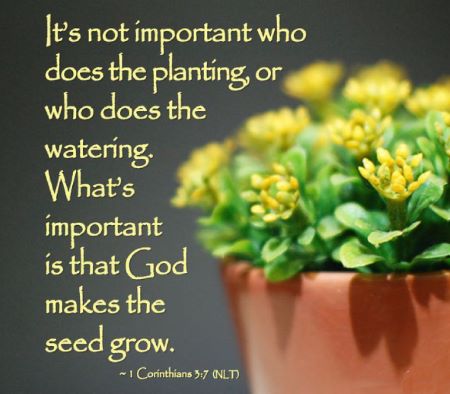
How Long, O Lord? How Long?
I’m not a constitutional scholar, but I know there’s an awful lot of energy around the Second Amendment. It was adopted on December 15, 1791 as part of the Bill of Rights and simply says “A well-regulated Militia, being necessary to the security of a free State, the right of the people to keep and bear Arms, shall not be infringed.”
And this amendment is used to justify everything from home-grown anti-government militias to those who think every gun ought to be melted down. People on both sides at both extremes. And it’s easier to live in the polar extremes of anything, like gun control, abortion, LGBTQ marriage equality, interracial marriage, racism, equal pay for equal work, a women’s right to vote, and gerrymandering (the manipulation of an electoral constituency’s boundaries so as to favor one party or class). Take an extreme position on almost anything, dig in your heels, discount others’ positions almost before they even speak, and tell yourself until the cows come home, that you’re absolutely right.
It’s easier to live in the extremes because it maintains the status quo. It’s easier, because we can hold on to a one-size-fits-all approach instead of having to deal with nuance. So we can avoid the messiness of any particular topic. It’s easier to live on the extremes because it becomes easier to keep religion and politics far apart; and as justification for this, many will point to the 1954 Johnson Amendment which prohibits churches and religious organizations from explicitly endorsing a political candidate, with the penalty of forfeiting their tax-exempt status.
An excerpt from a July 5, 2016 Christian Century magazine article affirms though, that churches and religious organizations are perfectly free under the tax-exemption laws to express their views on immigration, guns, military intervention, abortion, same-sex marriage, health care, and other issues. They are free to express their views about character and religious values. They are free, for example, to say that a candidate who relies on innuendo and hearsay is destroying the basis for genuine debate. They are free to say that a candidate who threatens opponents with violence is undermining the basis of community. They are free to say that a candidate who targets people of one religion for discriminatory treatment is attacking the basis of everyone’s religious freedom. They are free to say that campaigning by name-calling and personal insult is an affront to reason. And they are free to say that a candidate who sneers at the disabled, ridicules people because of their appearance, and promises to engage in torture fails to understand that all humans are made in the image of God. In short, there’s no law against religious leaders and religious organizations speaking and living out the truths that are rooted in their faith.
One of the bedrocks of Protestant theology is Richard Hooker’s so-called “three-legged stool.” It provides a dynamic guide when reflecting on our common life. When looking at an issue arising out of polity, liturgy, or doctrine, we could look at Scripture, experience, and tradition in the light of reason; when looking at Scripture, historical experience must be allowed to inform conclusions; and as it relates to reason, Scripture must be allowed to judge tradition.
For example, Exodus 21:7 allows us to sell our daughters into slavery. Exodus 35:2 says that anyone who works on the Sabbath shall be put to death. Lev. 25:44 states that we may possess both male and female slaves, provided they come from neighboring nations. Lev. 21:20 states that we may not approach the altar of God if we have a defect in our sight. Lev. 19:27 forbids trimming the hair around a man’s temples. Lev. 11:6-8 states that touching the skin of a dead pig makes one unclean. Lev. 19:19 prohibits wearing garments made of two different kinds of thread (like a cotton/polyester blend).
And so while scripture allows or prohibits these particular statutes, we know that the conditions and circumstances under which our mothers and fathers in the faith wrote thesm no longer exist, and I know no one who abides by any of them. And so Hooker’s stool helps us see that the process by which we assess the staying power of any dictate is a dynamic process and may change over time.
The Second Amendment was written in a place and time in response to circumstances which this country’s founders faced and citizens faced, and when there was no standing army or police force. Those circumstances no longer exist. And according to last month’s May 24 article in the Washington Post –– since Sandy Hook (when twenty children and six adults were murdered and two injured) –– our nation has experienced more than 3,500 mass shootings (shootings in which four or more people are killed or injured). And in just one week’s two mass shootings, thirty-one children and adults were murdered and three were injured. Can anyone say that this is how Jesus wants us to live? Why can’t we, then, apply the same interpretive principles with which we understand millennia-old scripture, to the ways we understand the genesis of our infant country?
In a 2017 U.S. poll, there were 120.5 guns for every 100 people. Bp. Singh recently wrote that we don’t have a Second Amendment problem. What we have is a gun problem. But if as a nation we did only those things which could be done –– things like stringent universal background checks, red-flag laws, safe storage of guns, bans on large capacity ammunition magazines and assault weapons, and by making mental health care more accessible –– more and more innocent people could be saved. And while doing these things wouldn’t eliminate 100% of gun deaths, our families and neighbors are worth the effort. Aren’t they?
Almighty and ever living God, source of all wisdom and understanding, guide us to perceive what is right, and grant us both the courage to pursue it and the grace to accomplish it; through Jesus Christ our Lord. Amen.








